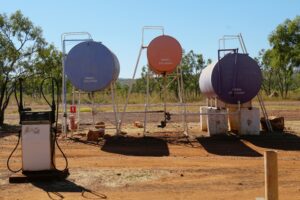
Stock theft under the spotlight
Written by Louis Wessels, Chairman of the National Stock Theft Prevention Forum Stock theft is as old as man himself and is already mentioned in
Written by Theo Boshoff, Agbiz Head: Legal intelligence
We must ensure that land reform happens, but in a sustainable way so that agricultural production and food supply remain vibrant over the coming years in order to prevent basic nutrition from becoming unaffordable. As it currently stands, Stats SA estimates that 13,8 million South Africans, or one in every four, live under the food poverty line, which means they cannot afford their basic food demands and are food insecure. If the price of food increases due to uncertainty regarding expropriation without compensation and the associated disinvestment into the sector, the situation will become even worse. It is therefore vital that we find solutions to accelerate land reform without causing large-scale uncertainty in the agro-food system.
In the Economist Intelligence Unit’s 2017 Global Food Security Index, South Africa was ranked as the most food secure country on the continent, at 44th out of 133 countries. This Index captures the most critical aspects of food security, namely; affordability, availability, as well as quality and safety. South Africa’s relatively high rating has been made possible by robust agricultural output over the years, resulting in South Africa being one of a few nett exporters of agricultural products across the globe.
This is, of course, a remarkable achievement considering the fact that South Africa is relatively resource-poor when compared to many other African countries. What differentiates South Africa from the continent is high levels of investment into the sector which is largely driven by transparent markets, strong institutions and robust property rights capable of being enforced through the courts.
This brings us to our key point – expropriation without compensation. In a scenario where such a proposed policy were to be adopted, it would threaten the established confidence investors place in South Africa’s property rights framework and there would be negative implications for agricultural investment. The agricultural sector needs investors to commit resources by investing in the land to grow production. If a policy of expropriation without compensation is followed, investors will be reluctant to invest out of a fear that they will most probably not be able to recover the value of their investments if the land is expropriated without compensation.
This in turn will affect agricultural production, and subsequently the availability and affordability of food in the country. Such an outcome would not be desirable as South Africa is already food insecure at household level. Evidently, Stats SA currently estimates that 13.8 million South Africans live under the food poverty line.
A clear implication of lower agricultural production in South Africa was witnessed in the 2015-16 drought, where food price inflation – the pace at which prices are increasing – averaged 10.5% in 2016. This came as result of South Africa being a net importer of staple grains such as maize, soybeans, and peanuts, amongst others. This meant that the country was buying these products at an import parity price – where prices are determined by the world market, the cost to transport the product/commodity to market, as well as the exchange rate.
This definitely is not an ideal position for a country to be in, particularly with regards to its staple food. In addition, the results of this were largely felt by the indigent, which spend a far greater share of their monthly income on food. While food inflation peaked at 12.7% during the height of the drought, food inflation in a scenario of expropriation without compensation will be far more severe.
Above all, we must ensure that land reform happens, but in a sustainable way so that agricultural production and food supply remain vibrant over the coming years in order to prevent basic nutrition from becoming unaffordable. As it currently stands, Stats SA estimates that 13,8 million South Africans, or one in every four, live under the food poverty line, which means they cannot afford their basic food demands and are food insecure. If the price of food increases due to uncertainty regarding expropriation without compensation and the associated disinvestment into the sector, the situation will become even worse. It is therefore vital that we find solutions to accelerate land reform without causing large-scale uncertainty in the agro-food system.
On the one hand we need to access more land for redistribution, and on the other hand we need to secure property rights to maintain investor confidence in our agro-food sector, but these need not be conflicting needs. Instead of lowering the cost of acquiring land, more funds can be made available for land reform by leveraging private sector capital through blended finance models in a public-private-partnership arrangement. This would be the best way to accelerate land reform without raising the price of basic food items.

Written by Louis Wessels, Chairman of the National Stock Theft Prevention Forum Stock theft is as old as man himself and is already mentioned in

Diesel is often the preferred energy for pump systems, particularly temporary sites. But electrical pumps can be a superior alternative.

Like 65 other countries South Africa will have general elections this year. 52 political parties are competing for the national vote. How is an electorate